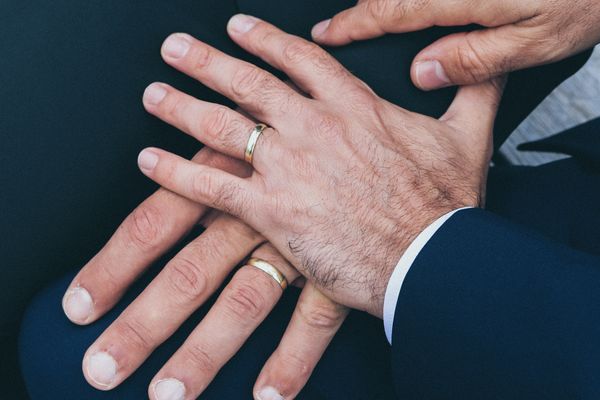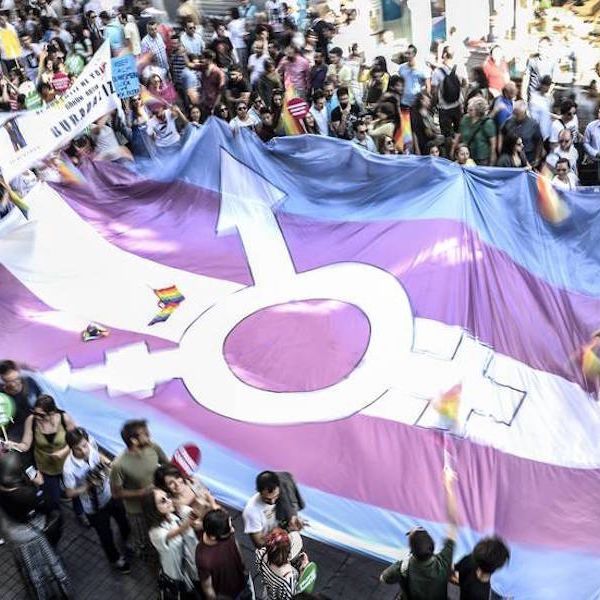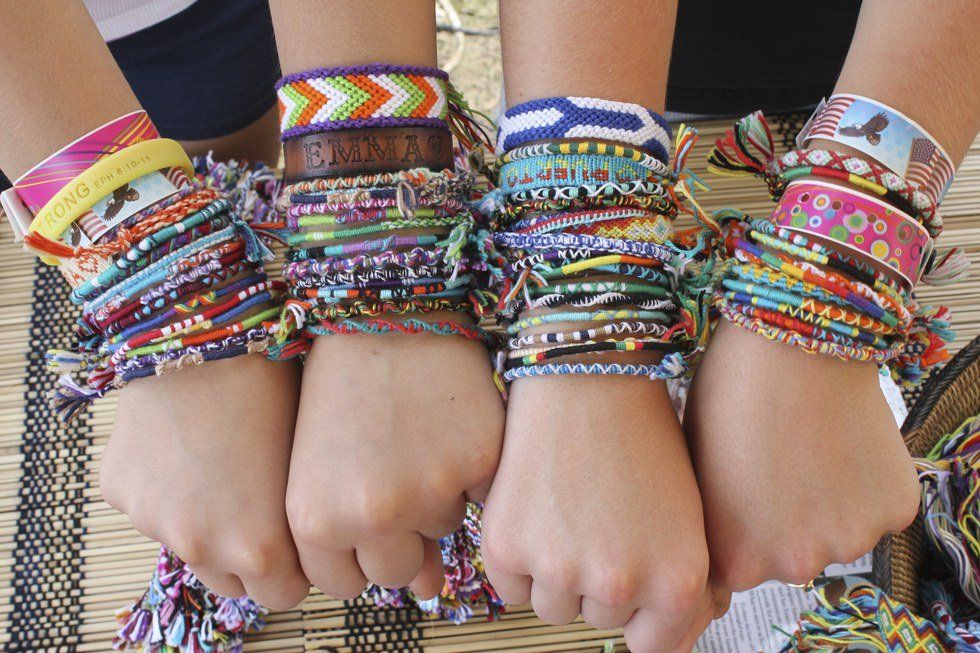Back in September, I visited the LGBTQA+ table at my school’s activities fair. Amongst pamphlets for different clubs, condoms, and stickers, there were buckets overflowing with pins. I, a proud pin collector and, really, hoarder enjoyed rifling through pins with rainbow hearts, different pronouns, images of queer role models, and various flags.
The first that stuck out, however, said “some of my best friends are straight.” I love this pin. I love it because it calls out everybody who thinks that their single queer friend negates their own words or actions. I also love the irony in the fact that at the time, very few of my friends were straight. Of course I knew plenty of straight people and one or two of my friends were heterosexual, but somehow I’d inadvertently ended up surrounding myself with almost exclusively queer people.
This, like many things, changed when as I grew more accustomed to college. I joined clubs, started talking to people in classes, and eventually I made friends outside of those with whom I live. Sure, a couple of them were queer, but I think it’s safe to say that I’m in close contact with more straight people now than I’ve ever been. I love my friends, and I didn’t even really notice the shift in dynamic until after the second semester started. That said, there have been little moments where that aspect of my social life, and the gap which was left in its place, felt much bigger.
I think it took me a few weeks to make the connection between the fact that “liberal,” or even “ally” doesn’t equal “knowledgable.” There have been times where my very supportive friends, who have absolutely no problem with my queerness, have had to be educated on things that seem very obvious to me. For instance, when I angrily declared that a space which is designated for LGBTQA+ people is run by somebody who identifies as both straight and cisgender, I was met with blank stares followed by a series of questions along the lines of “Who cares as long as they’re an ally?”
It hadn’t even occurred to me that somebody might disagree. My straight friends at home were always very involved in my life, and therefore my queerness, and after years of listening to my rants they have a pretty good grasp on my experience as a queer person. Of course I welcome and encourage questions, and I would never see that as a reflection of how “good” somebody is as a person, but it’s taken me time to remember to allow for time in which these questions can be asked.
Because my friends are super supportive and really good people, they tend to try really hard not to offend me, or anybody else for that matter. If you’re reading this and wondering “well, if they’re good people, why do they have to try so hard?” then let me tell you - it’s because they might even be on the brink of trying “too” hard. I don’t love saying that, because let’s be honest- anybody who’s desperately avoiding hurting somebody else’s feelings has to be a good person. That said, I don’t know that we’ve reached a point where we can all agree to just trust our instincts and the fact that I vocalize any questions/comments/concerns. My shaking my head and smirking at an R-rated joke is sometimes met with wide eyes and “I’m so sorry”s, which are far from necessary. So far, in fact, that I then find myself apologizing to them for scaring them. It’s a vicious cycle of “I’m sorry", which, while probably the best form of vicious cycle, is pretty silly.
I’ve also had to remind myself that the queer community isn’t as present for those who aren’t members. Certain jokes are taken literally than intended (e.g. “I own this carabiner/flannel/Subaru Outback because I’m gay”), and remarks such as “I want to look as queer as possible” result in conversations about what it means to me to be engaging in my community. I find myself censoring more of what I say, which isn’t ideal, but is often easier than explaining what I mean. It can be hard finding the line between feeling accepted by being able to share my community with my friends and feeling frustrated by having to explain it as I go. There are some things that I know I have to just move past, and there are other things that lead to longer discussions about my queerness.
Ultimately, it’s about knowing how to find good people. Good people aren’t the ones who know the most; instead, they’re the ones who want to know the most. I know that my friends care for me and want to be as accepting as humanly possible. I know that when they say something that makes that little buzzer go off in my head it’s just a matter of education, and that asking questions is a means of furthering said education. I think that for some people, it truly is just a matter of exposure or lack thereof.
It’s easy to say in your head that you’re accepting of all people, before you actually really know anybody who doesn’t quite fit in the norm. I think that those people still care deeply about equality and have good morals, and that it just takes time to adjust. Some people can immediately go into talking about your SO without blinking an eye, and some people are caught off guard. That’s okay.
As cliche as it sounds, the key is patience and understand around the fact that not everybody has the same experiences and that it can take time to catch up. Find the good people. Find the ones who care for and about you, whether they’re LGBTQA+ or not. It might take time before everybody is totally comfortable around the topic, but it’ll happen.





















